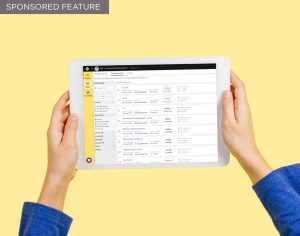As your business expands, you’ll encounter challenges that test the limits of entry-level accounting software like Sage, Xero or QuickBooks and the processes on which they’re built. These tools are excellent for startups and small enterprises, but they will struggle to respond to the increasing complexity, transaction volumes and reporting requirements of your growing business.
In my role, not only as a chartered accountant but also as a COO, there are some common hurdles I see business leaders face as they scale, but with today’s technologies, there are some smart moves you can make to support sustained growth.
Here are some of the most common signals that indicate your accounting software could be holding you back and how today’s tech is helping to overcome these challenges:
Complexity in managing multiple subsidiaries
Adding or acquiring new entities or branches introduces a level of complexity in financial consolidation that can quickly outstrip the capabilities of rudimentary tools like Excel. The process of consolidating financial data can be fraught, particularly when these entities operate in different currencies, have different fiscal periods or must comply with various regulatory environments.
Excel, while flexible and widely used for consolidated reporting, poses several limitations. You will struggle to manage currency conversion and track FX fluctuation; intercompany transactions that are manual will be error-prone; and the sheer volume of data will be overwhelming. Problems with version control can also cause errors, duplication and outdated information.
Month-end close becomes unwieldy
As your accounting data increases, relying heavily on spreadsheets for month-end tasks poses problems. Handling large volumes of data outside your accounting software becomes inefficient, it risks inaccuracies and discrepancies, making reporting unreliable.
While Excel is a powerful tool for data analysis, it can lead to time-consuming problems as your business grows. Processes run in Excel are manual and lack the automation features that many of today’s accounting tools offer for accruals, prepayments and depreciation. When it comes to monitoring performance, a flexible coding structure in a more advanced accounting application produce more sophisticated analysis.
You don’t just need reports, you want insights
Most small businesses use spreadsheets for reporting. While Excel is a powerful and versatile tool, its limitations become evident when it comes to complex data manipulation. For a start, there’s a high risk of human error caused by incorrect data entry, formula mistakes or copying errors. This can lead to inaccurate reports and the wrong decisions. Large datasets that need manual checks for accuracy exacerbate the problem.
For growing enterprises, the process of manually compiling data is becoming a thing of the past thanks to advancements in AI, Automation and Analytics. Many of today’s more sophisticated tools draw automated reports from real-time data. Reporting is also becoming intensely visual with the advancement of tools like Power BI or Qlik. These tools not only provide visually engaging reports, they can help to tell a story. Businesses that are leaning into this insight-led approach are gaining significant advantage.
Disconnected data is proving problematic
When your finance system and other crucial business apps operate in silos, the data that need to be shared between the two will never be in sync without manual intervention. Disconnected applications also limit scope for business-wide automated workflows that can save an enormous amount of time and error. Connecting this data to draw meaningful analysis or to trigger automated actions should be on every business leader’s agenda.
Most of the cloud-based, entry-level accounting tools have standard integrations. While these systems provide basic functionalities that cater to the needs of small businesses, the functionality can often fall short in a more complex business environment, limited by scope, inflexible or not easily scaled. Most importantly, there will be little support for businesses looking to optimise these integration opportunities. Moving up to a more sophisticated accounting tool will give you greater opportunity and the guidance you need to build slick, modern integrations.
Collaboration is your new way of working
Today’s technologies offer seamless communication and data sharing, breaking down geographical barriers and fostering a more dynamic, responsive work environment. If you’re using a cloud native application like Xero, you might already be enjoying these benefits. But if you’re not in the cloud, you will struggle to experience true collaboration in real-time. Benefits include tighter project management, faster decision making, greater transparency, better communication and — the Holy Grail — cloud-based document management. What a dream!
Cloud-based applications usually come with automation capabilities that streamline repetitive tasks such as data entry, invoicing, and reporting. They often have mobile apps too that can streamline paper-based processes like expense management and approvals.
Conclusion
Whether you’re struggling to manage multiple subsidiaries, dreading month-end close, needing better intelligence or trying to achieve smoother, cross-business workflows, your processes are probably no longer fit for purpose. As your business evolves, the limitations of entry-level accounting software and traditional processes become increasingly apparent, posing significant hurdles. If your accounting processes might be stifling your business’s potential, take a look at either transforming your finance function into a digital workplace or, if you’re already there, scaling up with a cloud-based application that can better support you transition to the next level.
This article comes courtesy of AccountsIQ, scalable cloud accounting software for growing enterprises.
Share via:







































